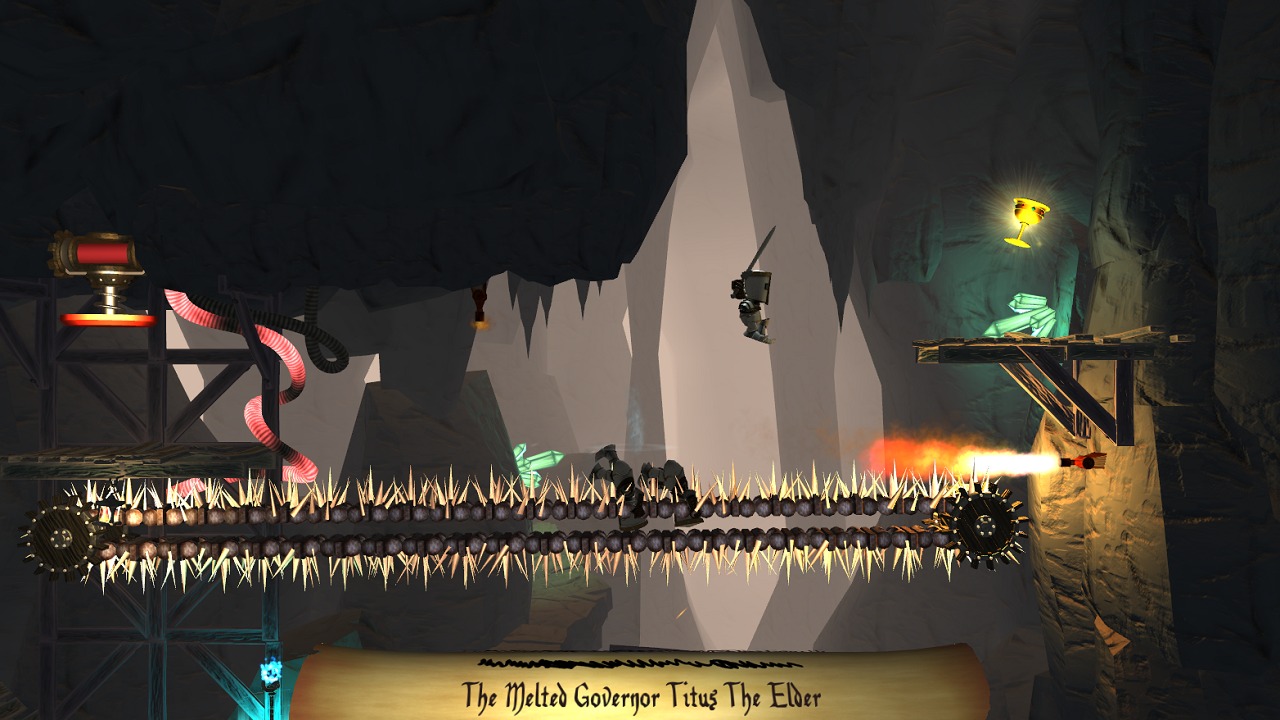Life Goes On - Review
I took me a long time to pin down exactly what it was that felt so strange about Life Goes On. I knew it wasn’t just the morbid nature of repurposing your corpses as puzzle solving tools, bizarre and unsettling as that is. And it wasn’t that there was something wrong with the puzzle themselves, because even with this odd feeling swirling around inside of me I was having a grand time solving them. When I finally figured out what had been bugging me, it was both surprising and a little amusing. With how deeply the concept of death has been incorporated and mechanicalized in games, and then instilled in me through years of playing them, I realized Life Goes On felt off because it was doing precisely the opposite of what I’d been trained to do above all else: stay alive. With how many countless grotesquely violent and gore fill games I’ve played I’ve become rather horrifyingly numb to using violence as a mechanic against others, but through all of those keeping myself alive was always the objective above all else.
To do otherwise in most games is to effectively stop playing. Death is simply failure by another name, often meaningless but nearly always present and in some cases even romanticized as one of a game’s most notorious traits (Dark Souls being an obvious example). Life Goes On asked that I rethink the concept of death and in doing so it made it mean something again. Each time one of my knights died I felt an odd mixture of joy at being able to move forward, and distress at the very thought I was taking pleasure from leading my character to the slaughter.

What’s special about Life Goes On is that it doesn’t treat death the way so many modern games do. It’s not cynical, graphic, or intended to shock and appal you. It’s more like a cartoon where someone gets an anvil dropped on their head. Its situations are so absurd and everything drawn in such a delightfully cheerful tone, that I couldn’t take anything seriously because I wasn’t supposed to. Life Goes On recognizes how ridiculous its concept is and mostly manages to come off as silly, maybe even hilarious to some, rather than disturbing.
The way this unorthodox view of death is then applied to puzzle designs helps make a tired genre feel fresh again. There are a lot of the usual devices at work here, be they buttons, blocks, or various hazards, but the way you interact with them with the help of your past failures makes them feel original and inspired. Spikes become walkways, freezing beams create pushable blocks, and sticking yourself in an outlet completes the circuit opening the door. With death being directly integrated into the game design, it also helps take a lot of the edge off of missing a jump or screwing up a sequence, which removes most of the frustration so typical of the genre and had me playing through the entire game in just a few extended sittings.
Final Word
I realize I’ve sort of come full circle with this review, beginning with how Life Goes On made me remember that death isn’t just a meaningless game of numbers, but then arriving back at how I enjoy its mechanical use here. Ultimately Life Goes On has its cake and eats it too, so any attempt to make it out to entirely subvert the usual violent video game trappings would be dubious at best. But that it made me consider all of this, with seemingly no intention and while delivering an excellent puzzle platformer, feels like at least a modest accomplishment. It got me thinking about things I never even recognize in most games, and though it didn’t quite go all the way, it started a discussion and even managed to have a lot of fun in the process. Odd praise to be sure, but it’s a rather odd game itself isn’t it.

